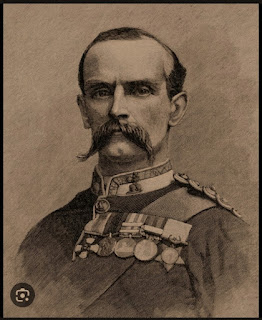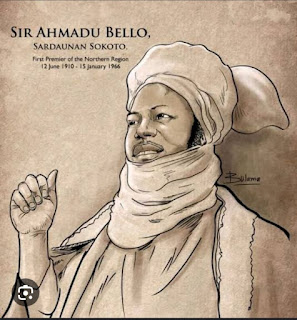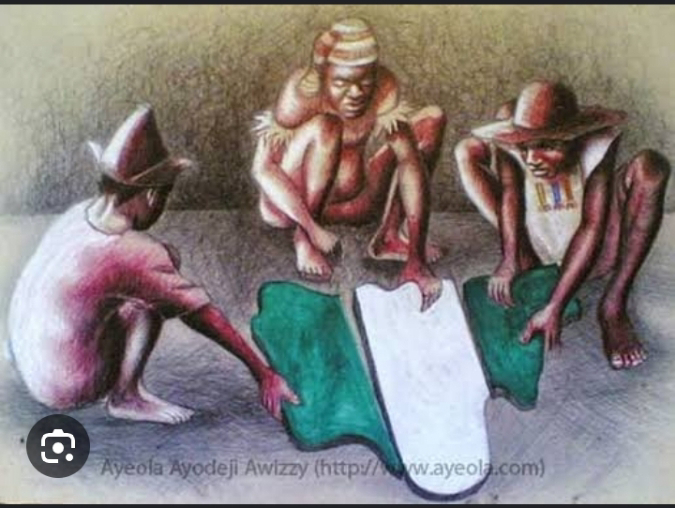Part 2: A Summary Frederick Lugard Administration and Indirect Rule In Northern Nigeria
EDUCATION AND EXCLUSION
It is clear from early Arabic sources that traders who migrated into Hausa-land followed a traditional pattern of settlement in the "strangers quarters". They were usually under the immediate authority of their leaders but still ultimately subject to the sovereign authority of their host. After 1911 the British Administration established a more rigid segregation of this areas from the local population. By 1914 Sabon Gari settlements, populated primarily by Southerners that worked for the railroad system as government clerks and employees of the European firms were well established in Kano and Zaria. In 1914 the township ordinance which regularized the Sabon Gari system officially established the areas as second class townships throughout Northern Nigeria. In the South Sabon Gari was located within the city walls, in the North they were usually outside the city thereby providing a distinct physical separation between the indigenous community and the strangers quarters. The Northern Sabon Gari communities were granted access to British legal system they were given an extra-territorial status that removed them from the Islamic justice of the Emirs. The Southerners were largely educated by the missionaries therefore as seen above they were immediately exempted from direct contact with the Northerners by the British Administration.
Kastina was the first city to establish schools by the British which was financed by the Native Authority. For many years Government secondary education in the North was centered in Katsina, yet little attention was paid to the development of Western oriented education during the first two decades of British rule, for more than a decade Kastina held the North's only institution of primary education. A small primary school was built there in 1909 but was poorly organized and though by 1912 there was also a British school in Kano, the Northern aristocrats still preferred to send the children to one of the 101 Koranic schools.
In 1915 after becoming governor-general of an amalgamated Nigeria, Lugard called for more grant-in-aid to government schools in the North. However officials in London did not support the initiative, arguing instead that such grants might not involve introduction in mission schools of the European system of education which had tended to produce unsatisfactory results in the coastal areas of Africa. Lord Lugard though believed that "by cordial cooperation in government, while settling the standard efficiency in it's own schools, could and should be able to make use of mission schools and so to guide and control their methods that they should become an educational agency of value in the country". However a resident of Kano like most of his compatriots was less enthusiastic about the introduction of European "christian-tainted" education programs. instead he favoured the expansion of Islamic education, he argued that "if the young Hausa intellectual was not well grounded in his faith, he would be dangerously vulnerable to religious fanaticism which in turn will be a threat to stable government". Palmer believed that " the Hausa intellectual must not be Europeanized in any way...". Education in the North was designed to shield the students from the Europeanizing tendencies of Southern Nigeria. Which was was dotted with many Western-oriented mission schools. And although by 1915 instructions in government schools was in English, vernacular and Arabic continued to be used.
It was not untill Clifford who replaced Lugard as Governor-general in 1919, that indigenous Northerners were trained as teachers in the growing number of government supported primary schools. In 1921 Clifford choose Kastina as the site of the first teacher training college in the North because in pre-colonial period it had been site for higher education in Hausa-land, Clifford noted when outlining objective for the college in 1922 that "the students should be subjected to no influences which might tend to make them careless about the observance of their religious duties, forgetful of the customs and traditions of their fellow countrymen or lacking the respect and courtesy which they owe to all who occupy positions of authority... the young man who show's that he is unable to acquire knowledge without being arrogant to his fellows, impertinent to his superiors, neglectful of his religion or scornful of the customs and traditions of his forefathers will not be allowed to remain in this institution.
CONCLUSION
Even before the British Incursion, the Sokoto Caliphate was a highly decentralized polity. The individuals emirs did not however exclude Christian missionaries, nor did Lugard discourage missionary contact after his conquest of the region. But Lord Lugard realized early on that British taxpayers and treasury would not tolerate the financial burden of direct rule. Since he "could not see the fruit of his labour lost on the table of the Treasury in London" for Lugard, indirect rule was a necessity.
After conquering Sokoto Lugard assured that the practice of Islam would not be restricted in any way under the new regime. Subsequent administrations used the commitment to religious tolerance to exclude Christian missionaries, the exclusion quickly became an important factor of indirect rule in Northern Nigeria. In order to preserve "law and order" and the "Rule of law", the British argued that the Western Christian education that had spoiled Southern Nigeria must not be allowed in the North. Because missionaries often preached the doctrine of equality and often did menial jobs while attempting to convert the masses, colonial administrators feared that they would surpass the prestige of all white. Also as seen in Kastina the educational system was designed to produce graduates that will not be tempted by the Western ways of their Southern neighbors and missionary education was not allowed untill 1930. It is important to point that the purpose of this post is to show the incompatibility and differences between the so called "civilization mission" which apparently brought the white man to Africa and the "Indirect rule system" practiced by the British in Nothern Nigeria, a system that was manipulated by the British to keep the Hausa-Fulani as far from civilization as possible, in order to meet the political aspirations of the British Administration.



Good work Brother ❤️💯
ReplyDeleteKeep pushing bro ❤️
ReplyDelete